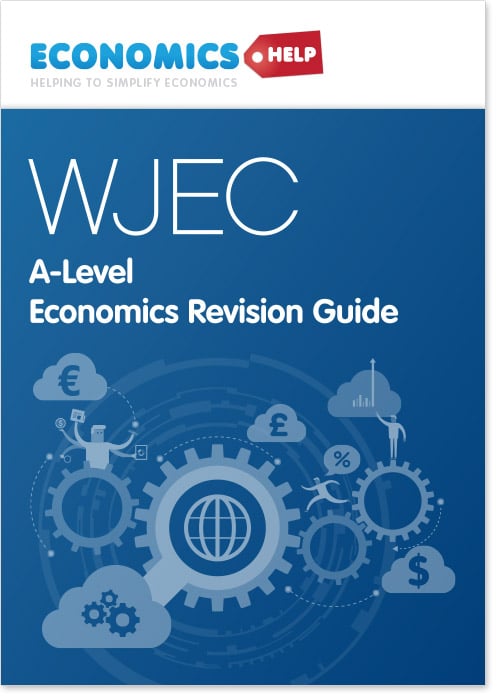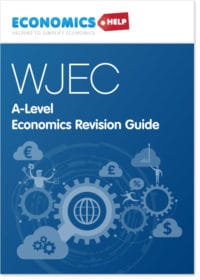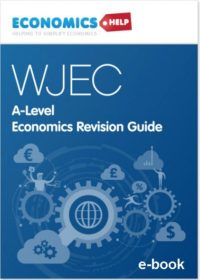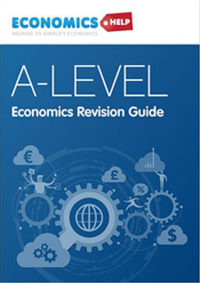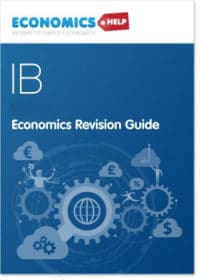WJEC A-level economics revision guide (network license)
£105.00
- Specific WJEC A-level economics revision guide (unit 1,2,3,4) – network license £105.00
- Updated for the new WJEC economics syllabus.
- Last updated June 2022.
- Note: The syllabus is essentially same for Eduqas (English version of WJEC)
- Trademark simplicity and clarity of presentation.
- Significantly expanded on previous version, with not just required knowledge, but also examples of evaluation for each topic.
- It comes in pdf format and is sent within a couple of hours after purchase.
About network license
- Allows unlimited use within one educational establishment.
- Package includes word documents, to enable modification for teaching.
Description
- Recently updated and expanded
- It is designed specifically for WJEC A level economics.
- The syllabus is essentially same for Eduqas (English version of WJEC)
A Level economics revision guide (E-Book)
- Simple yet detailed.
- Content designed to help prepare for possible questions.
- All main diagrams needed for A Level Economics
- Tips on writing evaluation – Essential for getting top grades
- Updated: 2022.
Revision Guide sent shortly after purchase.
Unit 1 – Micro economics
- Scarcity, choice and opportunity cost
- Opportunity cost
- Production possibility frontiers (PPF)
- Possibility frontier and economic growth
- Specialisation
- Markets
- Demand
- Supply
- Market equilibrium
- Consumer surplus
- Producer surplus
- Elasticity
- Using knowledge of elasticity
- The impact of elasticity on tax
- Income elasticity of demand (YED)
- Cross elasticity of demand
- Price elasticity of supply
- Tax
- Wage determination
- National minimum wage
- Flexible labour markets
- Impact of net migration on UK labour markets
- Evaluation of net migration
- How resources are allocated in a free market
- Market Failure
- Externalities and social efficiency
- Negative externality
- Positive externality
- Public good
- Information gaps
- Merit good
- Demerit good
- Government intervention to correct market failure
- Tax
- Subsidy
- Maximum prices
- Problem of maximum prices
- Minimum prices
- Tradeable pollution permits
- State provision of public services
- Advertising / Information
- Regulation
- Policies of Welsh government
- Government failure
Unit 2 – The UK Economy
- Circular flow of income
- Injections
- Withdrawals (W) (leakages)
- Multiplier effect
- Aggregate demand
- Consumer spending (C)
- Investment
- Government expenditure (G)
- Net trade (X-M)
- Aggregate supply (AS)
- Equilibrium national income
- Government macro economic objectives
- Conflicts between objectives
- Fiscal policy
- The National Debt
- Government spending
- Taxation
- Supply side policies
- Monetary Policy
- UK monetary policy
- The role of the central bank
- Exchange rates
- Factors that influence exchange rates
- Appreciation in the exchange rate
- Evaluation of an appreciation
- Trade
- Benefits of free trade
- Arguments for restricting trade
Unit 3 – Microeconomics
- Costs of production
- Law of diminishing returns
- Economies of scale
- Revenue
- Profit
- Profit maximisation
- The growth of firms
- Types of efficiency
- Market structures
- Examples of barriers to entry
- Contestable markets
- Business objectives
- Perfect competition
- Monopolistic competition
- Monopoly
- Price discrimination
- Oligopoly
- Collusion
- Nash equilibrium
- Competition policy
- Mergers
- Privatisation
- Public ownership
- Regulation of privatised industries
Unit 4 – Macroeconomics
- Aggregate supply (AS)
- The Phillips curve
- Economic growth
- Output gaps
- Unemployment and employment
- Inflation
- Deflation
- The balance of payments
- Terms of trade
- Fiscal policy
- Government borrowing
- The national debt
- Monetary policy
- Financial stability
- Regulation of the financial system
- International trade
- Globalisation
- Economic integration
- Euro/ Monetary union
- Economic development

